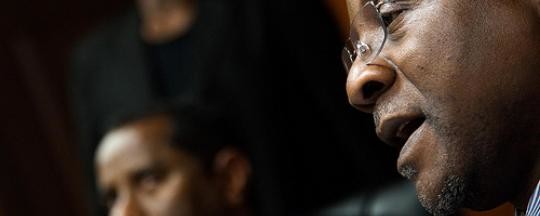Following his third mission to Sudan, the UN Independent Expert on the situation of human rights in the country issued a press statement on Thursday.
The focus of this visit was the three Sudanese states of Darfur, South Kordofan and Blue Nile. He expressed regret at not being able to visit South Kordofan, however, noted “some positive development in Blue Nile”.
Prof Mashood Adebayo Baderin expressed his regret that he was not able to fulfil his initial plan to visit South Kordofan “for security reasons”, but remains “concerned that ongoing hostilities in the state between Government forces and the SPLA-North armed group continue to impact the lives civilians living in the region”.
He highlights that the rebel attacks in Abu Karshola South Kordofan and Umm Rowaba in North Kordofan “seriously affected innocent civilians and resulted in human rights violations and displacements which are very worrying.
“I had the opportunity to meet some of the victims during my visit to Al-Rahd in North Kordofan. They gave disturbing accounts of the ordeals they went through during the attack.
“Last Friday as I arrived in Khartoum, Kadugli, the capital of Southern Kordofan was shelled by the SPLA-N resulting in the death of a UN peacekeeper. I condemn in strongest terms, human rights and humanitarian law violations perpetrated by parties to the conflict and reiterate the call I made to the armed groups during my last visit to desist from violence and resolve their disputes with the Government by peaceful means.”
Prof Baderin notes that since his last visit to Blue Nile, “there has been some positive development, notably a significant opening of access for the delivery of humanitarian assistance in Government controlled areas”.
However, he expressed his concern for “civilians trapped in rebel-controlled areas as a result of the belligerent activities of Government and rebel forces” in the region.
“I have received reports that the humanitarian situation in these areas continues to deteriorate as a result of the belligerent activities of the parties to the conflict. I have been informed that many displaced and vulnerable civilians have been forced to move further south without access to basic necessities such as water and food.”
He mentions that in his meetings with the Wali of Blue Nile, and others, “there is a general recognition that the continuing armed conflict in the region accompanied by the lack of security are key contributors, if not the major source of human rights violations in the state. I must reiterate and stress the legal obligation and due diligence of both Government and rebel groups to protect human rights even in armed conflicts and the need to allow unhindered humanitarian access to those civilians affected by the conflict.”
Finally, Prof Baderin reiterated the call he made during his last visit “of the important need for the Government to protect the rights to press freedom, freedom of expression and freedom of assembly. These rights are integral to the creation of an enabling environment that allow for civic participation in socio-political discussions in the country, where all citizens are free to express their view without fear of reprisals from authorities”.
He stressed that “all the concerns outlined above would require the active engagement of the international community in providing needed technical assistance and capacity building to assist the Government of the Sudan in fulfilling its human rights obligations as specified in my mandate”.
For further details, see coverage by Radio Dabanga
File photo: 14 June 2012. Khartoum: Prof Baderin (from Nigeria), addresses the media during the press conference at the Ministry of Justice of the Government of Sudan in Khartoum. He visited Sudan for the first time to monitor the human rights situation in the country (Albert González Farran/UNAMID)




